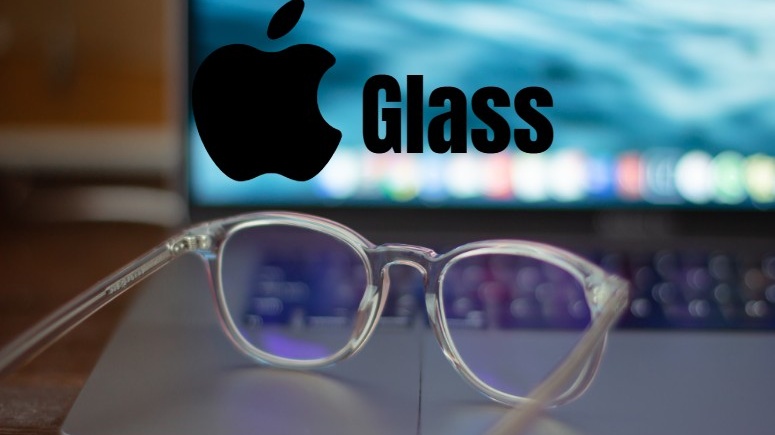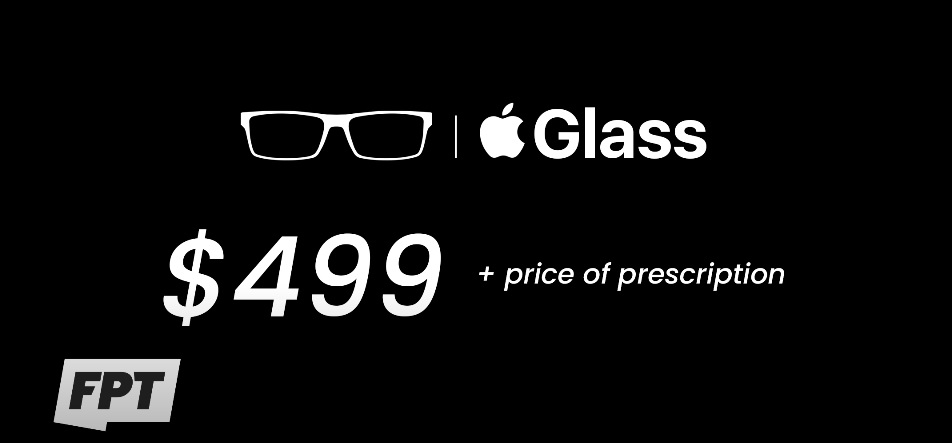Apple AR glasses: Everything we know so far
Apple's new AR spectacles could be spectacular

Apple is charging forward into the AR eyewear market with a pair of spectacular spectacles dubbed "Apple Glass" (via TechRadar). This is not to be confused with Apple's VR headset project (yes, Apple is reportedly working on both: AR glasses and a VR headset).
In late May of 2020, Jon Prosser, a reliable leaker known for having exclusive insight into Apple's future plans, revealed a lot of juicy information about Apple Glass in a YouTube video that sent shockwaves around the tech community.
- The next MacBook Pro could have the largest trackpad ever
- MacBooks will ditch Intel for custom Apple CPU next year (report)
We've been hearing speculation and rumors about Apple AR headsets for years, but there hasn't been any substantial information about the project — until Prosser spilled the beans on Front Page News (his YouTube channel).
In June, new information about Apple Glass poured in from a different leaker: Bloomberg's Mark Gunman. With Gunman's revelations, we now know that Apple Glass was codenamed N421 by the Apple team for their top secret AR project. But Apple Glass's mysteriousness is beginning to unravel -- here's everything we know about Apple Glass, or N421, to date.
Apple AR glasses price
First, you may be wondering, "How much does Apple Glass cost?" According to Prosser, the starting price of Apple Glass is $499, but a prescription cost would increase the total price tag.

Yes, you read correctly — Apple AR glasses will feature prescription lenses, which makes sense. Over 61% of the U.S. population wears some form of visual correction aid, whether it's contact lenses or glasses, and Apple surely doesn't want to lose such a huge consumer base.
Apple AR glasses prescription
Interestingly, though Prosser's Apple source noted that there's a price increase for Apple Glass spectacles with prescription lenses, a patent awarded to Apple by the U.S. Patent and Trademark Office revealed that Apple Glass may not feature prescription lenses in the traditional sense.
Sign up to receive The Snapshot, a free special dispatch from Laptop Mag, in your inbox.
The patent showcased a futuristic pair of spectacles that sports auto-correcting lenses that can adjust and optimize its lenses to ensure the best visual experience for the wearer.
Apple AR glasses design
"What does Apple's AR glasses look like?" would naturally be your next question. Prosser has seen a prototype for the Apple Glass design, but due to legal concerns, he decided that it'd be better to play it safe by simply describing what he saw.
According to Prosser, Apple Glass will likely sport plastic frames. However, there's a chance that those frames could be metal instead. The prolific leaker added that he cannot confidently say that what he saw is a final, ready-for-market design because, well, it's just a prototype.
The right-hand side of the Apple Glass frames will reportedly feature a LiDAR sensor, but Prosser didn't spot any other cameras on the futuristic eyewear design -- this is likely due to privacy concerns.
Apple AR glasses features
According to Gunman, Apple Glass will be able to beam maps and messages into the user's field of vision.
You'll also able to control Apple Glass with your iPhone, Prosser reported. Both lenses will be able to display information via a user interface called Starboard, which can be controlled with hand gestures.
The lens can also scan Apple QR codes, but Prosser did not delve into how this will be integrated into the Apple Glass experience.
Apple Glass may also come with a plastic stand for wireless charging.
Since Google Glass is AR eyewear, many may be expecting to emote a lot of "ahhs" and "oohs" over its capabilities, but Prosser noted that Apple Glass fans may want to reign back their excitement —- it is a first-generation product and it may not live up to our high expectations.
You may be wondering if there is a sunglasses version of Apple Glass on the horizon, and the answer is no — for now. Rumor has it that Apple engineers can't quite get the display to work properly on tinted lenses.
In mid-February, gossip from Apple's AR glasses supply chain started pouring in. Sources close to the matter say that Apple Glass will reportedly be equipped with micro OLED glasses. Unlike traditional screens like LCD panels for TVs, micro OLED glasses are built on chip wafers, which is what semiconductors are built on. This is why Apple is reportedly partnering with TSMC — a chip manufacturer — for Apple Glass' micro OLED glasses as opposed to Samsung, for example.
Apple is opting for micro OLED displays for its AR glasses because they are ultra-thin and lightweight (perfect for a head-mounted display), but they're also very power efficient and provide super high resolution.
Apple AR glasses launch date
There are conflicting reports on Apple Glass' rumored launch date. According to Prosser, Apple initially wanted to reveal Apple Glass as an, "Oh, and one more thing" moment at the October 2020 iPhone 12 event.
The problem is, though, that Apple desperately wants the media to be present during this reveal, but with social-distance mandates in place, that was damn-near impossible. As such, Prosser suspects that Apple will announce its AR glasses in March of this year. However, he believes they won't hit store shelves until the end of 2021 or early 2022. According to Bloomberg's Gunman, Apple Glass won't hit the market until 2023 or later — a timeline that seems more believable.
Kimberly Gedeon, holding a Master's degree in International Journalism, launched her career as a journalist for MadameNoire's business beat in 2013. She loved translating stuffy stories about the economy, personal finance and investing into digestible, easy-to-understand, entertaining stories for young women of color. During her time on the business beat, she discovered her passion for tech as she dove into articles about tech entrepreneurship, the Consumer Electronics Show (CES) and the latest tablets. After eight years of freelancing, dabbling in a myriad of beats, she's finally found a home at Laptop Mag that accepts her as the crypto-addicted, virtual reality-loving, investing-focused, tech-fascinated nerd she is. Woot!

